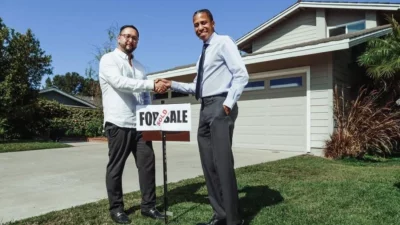You’d be surprised how many people think they can outsmart the system by dropping homeowners insurance altogether. Maybe the mortgage is finally paid off and it feels like one less monthly headache. Or maybe money’s just tight, and the premium feels like something you can cut—at least for now. But that gamble? It’s a lot riskier than people realize, and not just in the worst-case-scenario kind of way. Choosing to go without insurance doesn’t just open the door to disaster. It can quietly chip away at your financial stability in ways that are harder to spot until it’s way too late.
Owning a home without insurance is like driving an expensive car with no seatbelt and no brakes, assuming you’ll never need to stop fast. Sure, you might cruise along fine for a while. But when something does go wrong, and it eventually will, the damage can be fast, brutal, and way more than what you “saved” by skipping the policy in the first place.
Disaster Doesn’t Wait For A Policy
It’s tempting to assume that disaster won’t strike your house. Maybe you live in a quiet area with low crime, decent weather, and a solid neighborhood. But damage isn’t just about big-ticket catastrophes. It’s the pipe that bursts behind your kitchen wall while you’re on vacation. It’s the tree branch that crashes through your roof after a surprise storm. It’s the guest who slips on your front porch and breaks their wrist—and decides you should be the one to pay their hospital bill. These aren’t made-up scenarios for insurance commercials. These things happen every single day.
When they do, and you don’t have coverage, you’re not just dealing with emotional stress. You’re staring down the cost of repairs, replacements, temporary housing if your home becomes unlivable, and potential legal bills. For most people, it’s not something you can just cover with a rainy-day fund. And even if you do have savings, is that really how you want to spend it? All those years of socking money away just to drain it overnight because you didn’t have a policy?
There’s also the fallout that doesn’t get talked about as much. If your home takes a hit and you can’t afford to fix it, the damage can get worse. Mold. Structural problems. Vermin. Eventually, the home itself loses value, and it might take your credit—and future real estate prospects—with it.
The Protection You Didn’t Know You Needed
People often assume that homeowners insurance is just about protecting their house and belongings, but it also quietly keeps your lifestyle intact. When you lose that buffer, you’re gambling with your comfort, your routine, and sometimes even your relationships. If your home becomes uninhabitable, and you don’t have a backup plan or coverage for temporary housing, that becomes a conversation nobody wants to have. Suddenly, you’re calling in favors, pulling kids out of their routines, and trying to make big life decisions in the middle of a crisis.
There’s also a legal side that creeps in when you least expect it. Let’s say a neighbor’s kid gets injured on your property, or a contractor claims you’re responsible for an accident on your land. With no policy to back you up, the liability falls squarely on your shoulders. And lawsuits, even if they’re petty, cost time and energy that most people don’t have to spare.
One of the most valuable things you can do before making a decision is to request an insurance agent appointment. It doesn’t mean you have to commit to anything right away. It just gives you a clearer picture of what kind of coverage makes sense for your budget and situation. A lot of people assume they need more than they really do or misunderstand what’s included. Sitting down with someone can demystify the process and show you that the cost of basic protection is often less than a couple of dinners out each month.
When It Feels Like A Financial Stretch
There’s no denying that premiums can be steep, especially when everything else in life feels more expensive than it used to. But that doesn’t mean the solution is to walk away from protection altogether. There are ways to trim the fat without sacrificing your peace of mind. Higher deductibles, bundling with auto, dropping unnecessary riders—these can shave real money off your monthly cost without putting you in a vulnerable position.
Some people are tempted to “self-insure,” especially those who’ve already paid off their mortgage and feel more financially secure. But self-insuring is only safe if you’ve got deep, liquid reserves. Not retirement funds. Not tied-up investments. We’re talking accessible money that you can grab in a flash if your house suddenly needs a $30,000 roof replacement.
Even if you think you can swing it, you have to ask yourself whether that’s the kind of stress you want to invite into your life. There’s a reason most financial advisors still recommend keeping some kind of policy, even a bare-bones one. Because all it takes is one bad week to undo years of careful financial planning.
More Than Just A Piece Of Paper
Homeowners insurance gets treated like a boring piece of adult paperwork. You sign it, pay it, forget it—until you need it. But when that moment comes, and you’re on the receiving end of something unexpected, the policy stops being a formality and becomes your financial parachute. It’s the difference between moving forward and going under.
It also unlocks protection that people don’t always think about, like life insurance incentives or credit-related safeguards tied to your home’s equity. Some policies offer little bonuses like identity theft assistance or legal advice—things you may never need, but are invaluable when you do.
There’s also something to be said for the mental calm that comes from knowing you’re covered. Even the most organized, forward-thinking homeowners can’t predict everything. Knowing you’ve got a safety net changes the way you deal with stress. It doesn’t fix everything, but it gives you breathing room—and sometimes, that’s the difference between a manageable headache and a full-blown disaster.
Why It’s Not Worth The Risk
Skipping homeowners insurance to save a few hundred dollars a year is like refusing to wear shoes because socks are cheaper. The risk isn’t worth the temporary comfort. A policy might feel like just another bill, but it protects the one place you can’t afford to lose. The place where your life happens. Where your people live. Where your future unfolds.
And for what it’s worth, if nothing ever goes wrong, that’s not money wasted. That’s luck well protected.

Lexy Summer is a talented writer with a deep passion for the art of language and storytelling. With a background in editing and content creation, Lexy has honed her skills in crafting clear, engaging, and grammatically flawless writing.



